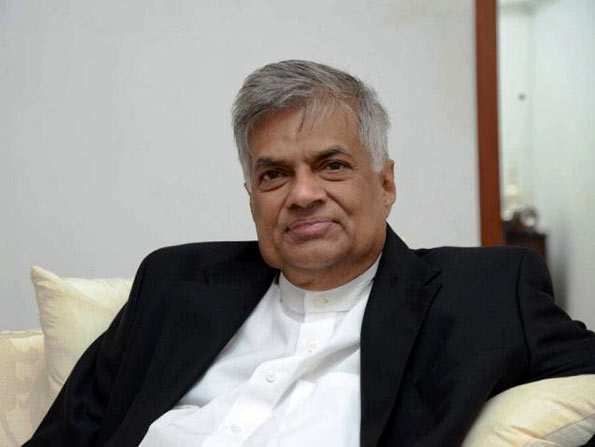Sri Lanka to allow Chinese subs to visit: Wickremesinghe

Sri Lanka will allow future submarine visits by China provided they are not too frequent, Prime Minister Ranil Wickremesinghe said in remarks published on Sunday.
“We have put out the criterion for visits by naval ships. Under that, ships including submarines from all countries can visit Sri Lanka,” the prime minister said in an interview with The Straits Times.
“As far as we are concerned, if it is a friendly visit, we will inform the neighbouring countries and we will spread out the (frequency of the) visits,” he said.
“The problem with the last visit by a Chinese submarine was that India claims it was not informed. So far, from what we found out, that seems to be correct.”
The 66-year-old Wickremesinghe returned to power earlier this year as prime minister of a national unity government led by President Maithripala Sirisena, who is from the rival Sri Lanka Freedom Party.
Wickremesinghe, who had led the United National Party since 1994, left for Colombo on Saturday after a four-day visit here that included meetings with, among others, Prime Minister Lee Hsien Loong.
Former president Mahinda Rajapaksa had angered New Delhi by moving steadily closer to China, and last year’s submarine halts by the Chinese Navy were seen as a tipping point in the Delhi-Colombo relationship.
Wickremesinghe suggested that some of the mistrust could have been avoided if India had been kept in the picture about the visit by the Chinese submarine, which was en route to deployment in the Gulf of Aden.
“We have told India what our policies are. We have an agreement that neither nation will do anything to harm the security interests of the other country. Subject to that, we carry on with our work,” he was quoted as saying.
“We have told India that China and we have a long relationship. Chinese economic investments are welcome in Sri Lanka.
“We did have some problems with China on infrastructure projects. (But) that’s a bilateral issue between Sri Lanka and China. It doesn’t involve India.
“We support India’s entry into Security Council. That aside, we run our own domestic and foreign policy. Our economic policies are more open than India,” Wickremesinghe told the Straits Times.
The Sri Lankan leader offered a cautious assessment of relations with New Delhi, saying “ties with India are improving”.
He said the government’s top priority now was national reconciliation. President Sirisena had called an all-party conference on the issue and the government was considering setting up a Missing Persons Office.
However, he indicated, allowing foreign judges to join Sri Lankan judges in special courts to try war crimes, as suggested by a UN human rights report, may be trickier.
The next priority was to restore the democratic institutions that, he said, had suffered under Rajapaksa.
This was one of the reasons why the government was pushing to end the executive presidency with a cabinet system of government.
(IANS)

Latest Headlines in Sri Lanka
- Popular rapper Shan Putha arrested with firearm March 14, 2025
- Batalanda commission report tabled in Sri Lankan Parliament March 14, 2025
- Female Grama Niladharis withdraw from night duty over security concerns March 14, 2025
- Sri Lanka ranked as the best country for settling down March 14, 2025
- UN pledges support for Sri Lanka’s industrial and SME development March 13, 2025



Most submarines can remain submerged until they return to their bases unless there is some ulterior motive for them to seek docking outside their orbit of influence.
Sri lanka ought to remain non aligned without exception to avoid disputes leading conflicts that
we have not the capacity to resolve and eventually be a threat to our sovereignty that would lead situations like when tht independence e Indians took unilateral action to violate Sri Lankan air space in the 90’s.
Parliament is the democratic institution and its procedures are dictated by the Constitution. At indepenence in 1948 (from the British) we were endowed with a bicameral legislature which guranteed that the democratic process worked well to defend the sovereignty of the people. This worked for a while until with its abolition and replaced by a constitutional head of State (JRJ)
Now Ranil wants to revoke the constitutional presidency ….is he going to substitute it wirh an upper or a senate like thag of the US senate